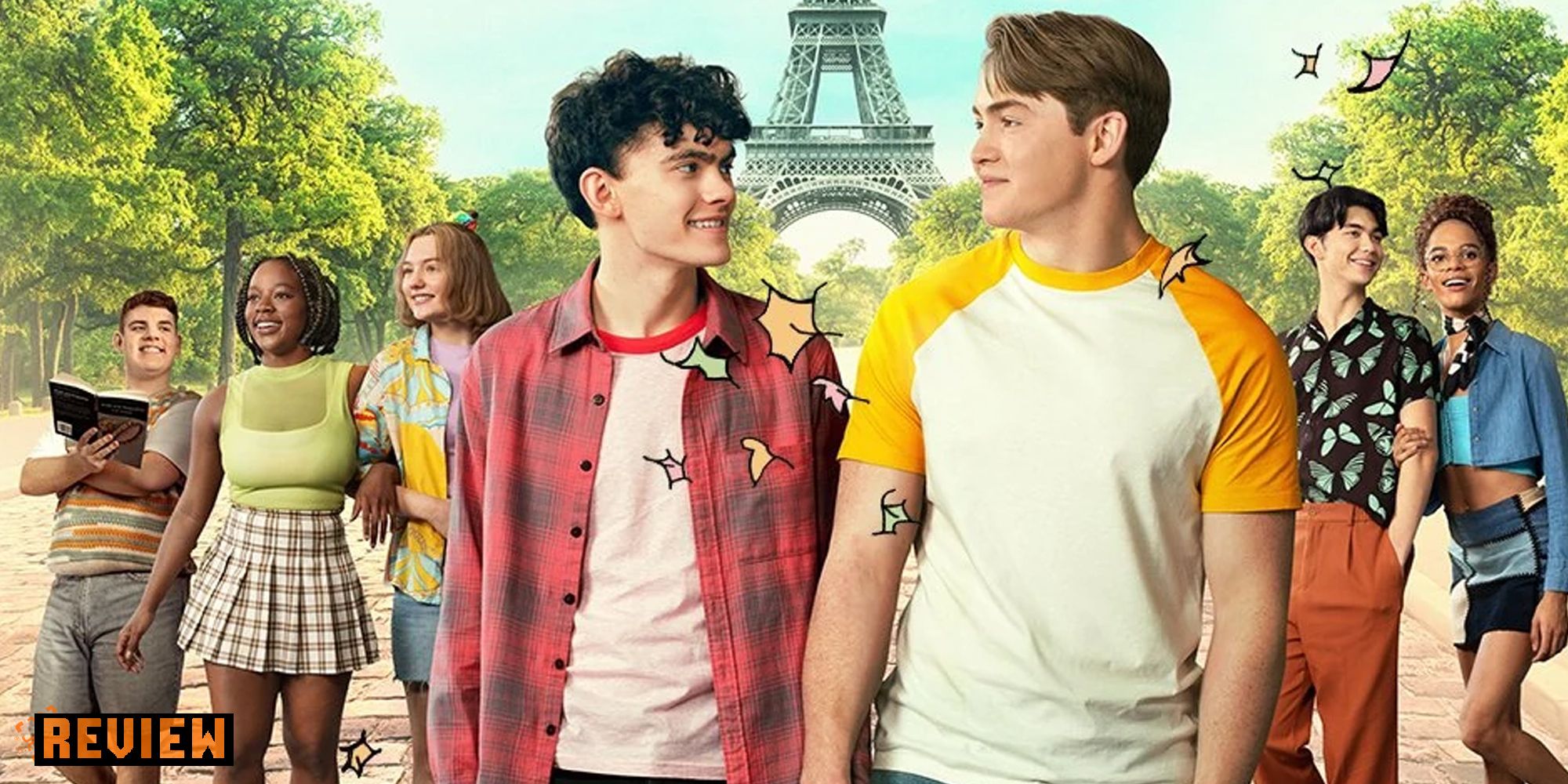There were several moments throughout Heartstopper’s second season where memories of my own life came flooding back. Nick Nelson arguing with his asshole of an older sibling when it comes to his boyfriend, all while a defensive mother backs him up. Or Charlie Spring looking back on the bullying he experienced as the only out person in his whole school. Moments of young love and queer hardship that thousands will relate to. Alice Oseman brings it all to life with untold authenticity because she has clearly lived what it means to grow up LGBTQ+ in the UK, while lining these experiences with a respectful dose of heartwarming sweetness.
Following directly on from the hugely successful first season, the second adapts large parts of the graphic novel’s third and fourth volumes. Nick and Charlie tackle the tumultuous issue of coming out to their friends and family while trying to feel comfortable about presenting as a couple in public. Tao and Elle struggle to settle on whether they are merely close friends or something more, while supporting characters like Tara, Darcy, and Isaac are afforded far more development than the source material ever allowed. I feared its speedy renewal would see major plot points like Charlie’s struggle with anorexia and the Paris trip rushed in pursuit of continued success, but Heartstopper largely takes its time and shines as a result.
As you might expect, it’s also unapologetically queer. Nick and Charlie are bombarding each other with kisses constantly in the opening episode, clearly locked in a stupor of puppy love before the reality of telling their loved ones and sitting exams comes crashing down.
It’s got the infectious lovey-dovey vibes that all young relationships like this have. Any and all time spent apart only gives an excuse for kisses when you’re together, and having to part ways to revise and appease bossy parents is framed as the end of the world when it’s little more than a mild inconvenience. It all feels real. Even if the presentation is reminiscent of a Roald Dahl novel where pastel sparks and fluttering love hearts fill the screen in an effort to empathise how magical it feels to embrace your identity, cast aside stereotypes, and fall in love.
With the first season doing a stellar job of establishing characters and building out the world, the next eight episodes waste no time delving into narrative themes and doing far more with each character. Iffy performances from William Gao (Tao) and Yasmin Finney (Elle) are far stronger this time around, like both actors are infinitely more comfortable in their roles and the material they’re working with. It’s sickeningly sappy, but Heartstopper always has been while never shying away from the struggles young queer people face each and every day.
Tao wrestles with the hard truth of Elle leaving him behind to attend art college even as sparks ignite between them, as if he’s afraid to lose a friend after his father’s death only a few short years ago. Elle meanwhile, wants to be more than the token trans girl at her old school as she embraces a new community that is so much more befitting of her identity.
Subplots involving Isaac’s asexuality and Tara’s homophobic parents are rushed, and aren’t given sufficient development or stakes to pull me in, or at least avoid laughing at the barbarically evil acts of parents which in some circumstances don’t always feel realistic.
LGBTQ+ people are oftentimes alienated from bigoted families and are afraid to confide in friends in the fear it will only burden them with trauma not their own, but Heartstopper isn’t able to establish strong enough foundations for it to feel convincing. It’s a rare flaw in a confident second act, and one that isn’t afraid to expand on the graphic novels in ways Oseman perhaps always intended to. Olivia Colman also returns as Nick’s mother and is so adorable. I want her to make me a cup of tea and give me a hug.
Speaking of Nick, Kit Connor is once again the show’s strongest actor. His demeanour is soft yet complex, hiding a whirlwind of emotions behind eyes that are always on the verge of drawing tears, but are holding back so much in favour of caring for those around him. One of the prevailing themes this time around is the idea that in wanting to finally embrace queer identities, you suddenly owe those around you something. As if you’ve been lying about who you are, deliberately trying to trick loved ones into embracing a falsehood.
None of this is true, but society has conditioned queer people into thinking otherwise, with Nick having to constantly correct people about his bisexuality or Charlie fearing the public consequences of a same-sex relationship when, in reality, prejudice should really be the last thing on his mind. There is never any pressure to come out or please the dated heteronormative values those around us uphold, and Heartstopper does everything it can to change that tired status quo.
Netflix has an indulgent winner on its hands with Heartstopper, and the second season only serves to build upon a stellar ensemble of characters all embarking on their individual queer adventures. The show’s success not only shines thanks to its great performances alongside an aesthetic that combines mundane suburban landscapes with the fantastical, but in how it succeeds in telling so many LGBTQ+ stories that folks can relate to.
Generations past and present can sink into a show like this and appreciate how much more welcoming the world has become, while still acknowledging the difficulties young queer people must overcome in an effort to find happiness. It strikes a delicate balance, and will leave you wiping tears away with a smile on your face.






